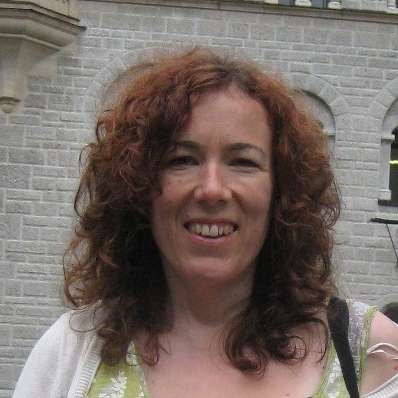Two characters were already on the stage as the audience arrived in Hall Two of the Sage, clearly preparing for something. “Joe” wanders around in agitation, now mentally going over his lines, now raising his head and planning his declamation. “Bob”, a seven-piece orchestra begins to tune up, only to be interrupted by by Joe begging him to stop, so that he can rehearse sotto voce a strange soliloquy on the theme of sloth.
Thus begins Words and Music, an eerie little radio play by Samuel Beckett. He wrote it for the BBC in 1961 and it was performed with music by the author’s cousin, John Beckett. Samuel Beckett however was never really happy with the work, and withdrew it until twenty years later, when he asked the American composer Morton Feldman, with whom he had already collaborated with on the opera Neither, to write new music for it.
Joe and Bob’s initial preparations are interrupted by the imperious arrival of their Lord, Croak. Standing raised above Joe and Bob, Croak demands that they entertain him, on themes of his choosing; first “love”, then “age”. then “the face”. What ensues is, at times a battle between the words of Joe and the music of Bob and at times a collaboration. In the initial section, Love, Joe uses his carefully prepared text, declaiming it now in a Shakespearean style, substituting the word “love” for “sloth” but this substitution makes us realise the emptiness of his words. By contrast, Bob’s music is by turns gentle, with lovely little percussion motifs, then tortured, crashing cluster chords suggesting the pain of love far more eloquently.
The seven players of Northern Sinfonia, conducted by Alan Fearon, were utterly convincing in their role as a single character, and their interaction with Cliff Burnett’s Joe exuded a quiet confidence in the power of music. In the second section, Age, when Croak demands that the two work together. Joe struggles to work up an absurdist poem to the woes of old age (“shivering for the hag to put the pan in the bed”) , which he delivers in a crooning half-sung tone, the orchestra butting in with suggestions until they have a complete performance. The music suggests fear and hesitance, with abrupt pizzicatos and flutter-tongued flutes - this is no comfortable old age.
The orchestra really come into their own in the final section, The Face. Joe describes a woman’s face, in repose; she may even be dead until he gets to the sudden rise and fall of her breasts and the orchestra take up a shuddering, sensuous ascending and descending pattern, the richest music in a delicate, minimal score. Joe wants to work his way further down her body, but as he falters, not quite able to express the words he wants, the orchestra confidently go on, and Croak, watching from above becomes gradually more distraught.
Alex Elliott was admirably imposing as Cloak: largely disdainful of both Joe and Bob’s efforts to entertain him, he watches impassively, uttering a disdainful grunt, or calling a halt by banging his wooden club on the floor in perfectly timed interruptions. Although it was clear how this piece works as a radio play, the visible anguish of Cliff Burnett as he groped for the right words, and Alex Elliott’s austere stillness added an extra dimension. At times the delivery was not always perfect, and unfortunately for anyone sitting near a door in Hall Two, the sounds of the rock concert in Hall One occasionally leaked through into the tense silences.
As the work ends, and Joe finally to articulate “one glimpse of that wellhead”, it’s all too much for Croak, who painfully struggles off the stage in distress. This short play then closes with a mere suggestion of a tender melody. Joe realises that he and his words are beaten, and implores Bob to play it again, which he does, before Joe offers a great heartfelt sigh, of grief, or reconciliation and the lights dim. It was a powerful performance from actors and musicians, and left me pondering on the relationship between text and music, which despite Beckett’s pessimism are fortunately not so often seen in competition with each other.


